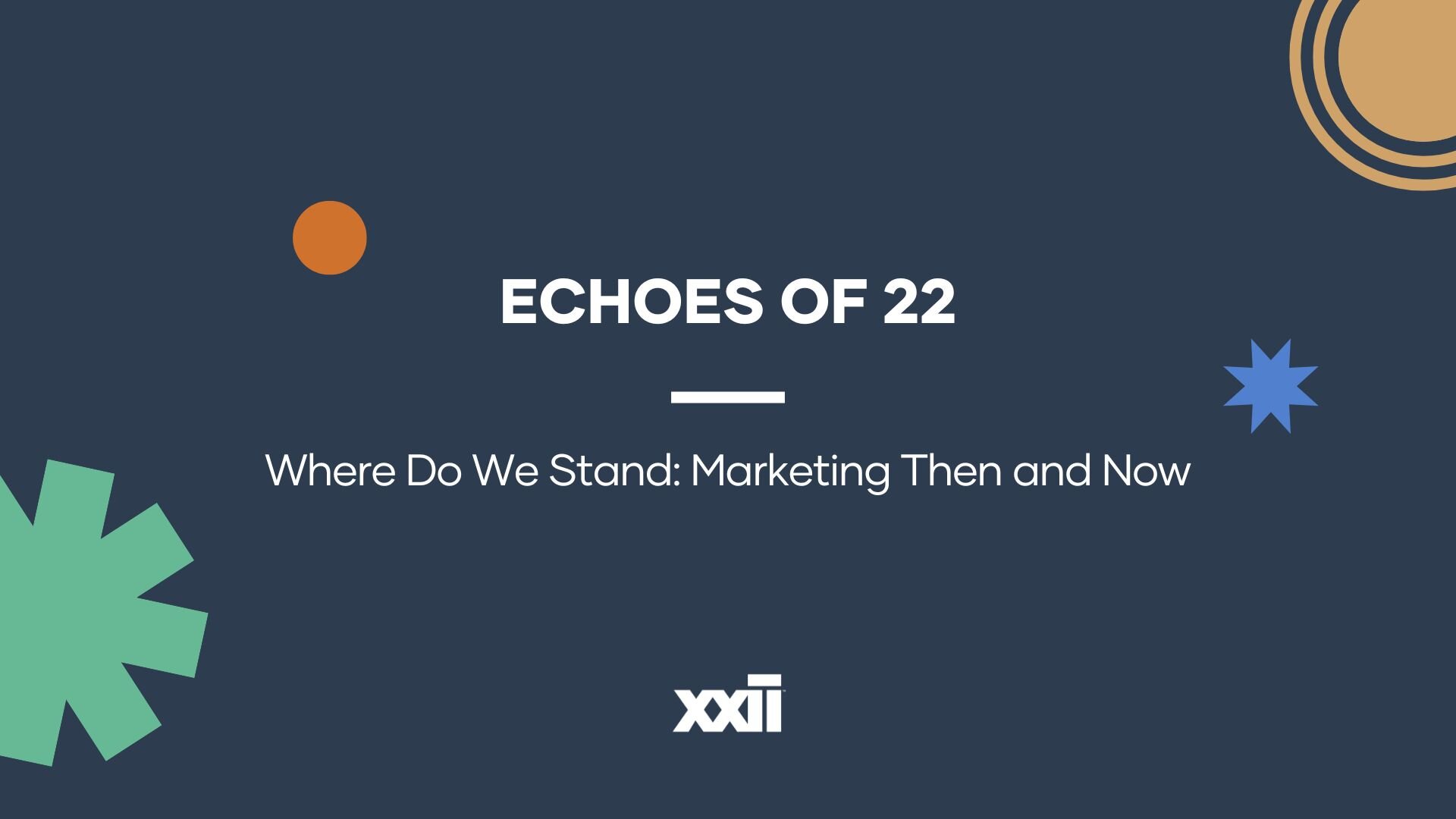
Do you think web design is dead? Check out our take in our latest xTalk.
Marc: Hey everybody this is Marc with XXIIBrands. We are back with xTalks. So today’s topic is: Is Web Design Dead? That seems to be the latest buzz on the article site. We think that it’s probably a topic worth discussing quickly.
Stephen: The premise of a lot of articles right now regarding whether or not web design is dead, or if it’s still alive, or if it’s in this weird Lazarus in-between state. Is web design something that we’ve gone past to where it’s no longer a bunch of coders writing and tweaking HTML and CSS? If it has transcended that in order to say the peak of web design has already been hit. That level, that plateau has already occurred. So in order to get past that, what is beyond web design?
Marc: And the other thing that’s making a lot of waves lately is artificial intelligence. You’ve got these platforms, The Grid and a couple others that are making a lot of buzz, a lot of news, about being able to dynamically create content based on information and/or images. So you load a color palette, you upload your images, you give it blocks of content, and the intelligence in the machine arranges, and choreographs this content and these images, to create these beautiful layouts. Which I’m all for. I think that’s fantastic. The However for me, is that you still have to, I believe, intervene where necessary.
Stephen: There are a couple places that will create the product for you based on your own content, based on your own pictures, photographs, the mission statement of the company. Whether or not it’s a company or products or anything like that.
Marc: That’s the big promise anyway right?
Stephen: The big promise is to automate that entire process. However there needs to be, in our mind, the ability to go in underneath that automated effort. And make the tiny little tweaks necessary to make it obvious that, hey this is not a template, or this is not artificial intelligence just populating this thing on an automator. Rather, there is a distinct and observable human presence, a human touch, behind that process.
Marc: One of the differentiators where a designer makes a difference, is in understanding the perspective of the business, the brand, that’s being represented. Definitely templates have upleveled and have given us a more beautiful web. There’s no doubt about it. I think the trick is, that even a good template can look really bad, when the brand voice doesn’t shine through. When the understanding of what it is that a consumer and/or web visitor is looking for. How the information is laid out, how well it’s articulated, and how beautifully the images marry with the message behind the brand.
I think that’s the difference that a designer can make in working with a company, an owner, a brand ambassador. Whoever it is that owns the voice, and ultimately that we have to pull out and help, really investigate. What’s the truth? What’s the core message? How fast can we get that to the visitor, so that it becomes very clear what this company is about? I really would argue that it doesn’t matter what kind of intelligence, what kind of template, what kind of automation you have. That really isn’t going to shine through, until the heart comes through for the company.
Stephen: If we’re doing our jobs correctly, all of those efforts underneath will flow seamlessly into the background. It’s kind of like if a sound engineer, or someone does their job really well on the production-side of a movie. His presence isn’t going to be absolutely to the forefront of the visitor. So the visitor is then completely devoid of any distraction around them. In a lot of ways it’s no longer web design, it’s experience design.
Marc: Good.
Stephen: It transcends this window that sits on a computer screen, on your laptop, or on your desk, or anywhere. It becomes something that you interact with to where, again, this becomes not a distraction anymore. And the tools and the things that help us through automation, through even the traditional programs that we base all of this web design off of. To say it’s Drupal, or WordPress, or just straight HTML. In the end it just doesn’t matter. It’s all about the experience.
Marc: Good. There’s a lot of talk last year about SEO being dead. And it’s kind of the same premise. It’s that the user’s experience is what we should all be after. And if we understand how to communicate the brand’s presence, whether it be digital, offline, anywhere, we’re doing ourselves a disservice if we don’t pay attention to what that communication channel looks like. How the encounter is going to happen, and what we’re saying when they get there. So when it comes to SEO and web design, and whether they’re dead, I really think that there’s a little bit of sensationalism to that. There’s some truth that the old methods are changing and we should continue to evolve. The however, is that communication is the underneath. And if the underneath is still true, the art of communication is ever evolving and that pushes us to get better.
So is web design dead?
Stephen: No.
Marc: I think our opinion is probably that web design is elevated surely by the templates and the automation that’s out there. It makes your job a little easier in terms of the technical acumen that’s required to develop good design. However, design principles haven’t died. They’re not going anywhere. A good designer that’s going to be able to truly translate a brand and present it elegantly, and seamlessly, with the right message to the right audience, is definitely not dead.
Hey thanks a lot for joining us on this xTalk. We hope to bring you a couple other new interesting topics in the coming weeks. Thanks for watching and we’ll see you again soon.




